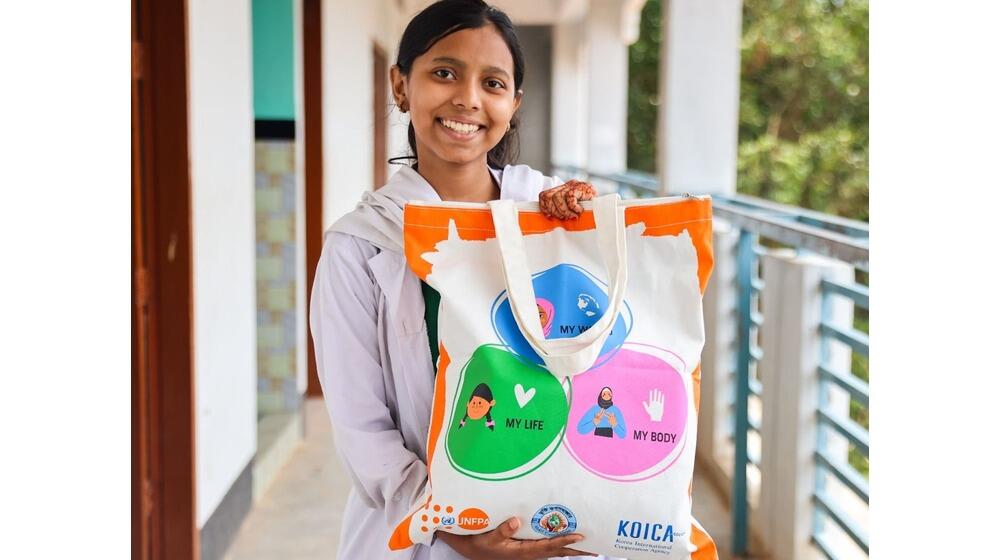Sunday, 28 May, 2023 - Cox's Bazar, Bangladesh – On the occasion of World Menstrual Hygiene Day, recurring annually on Sunday 28th of May, the United Nations Population Fund (UNFPA) celebrated the progress made towards improving the menstrual health and hygiene management of adolescent girls and women in Cox's Bazar, Bangladesh.As part of the celebration, adolescent girls and boys across Rohingya refugee camps and Bangladeshi host community schools participated in games, video presentations and menstrual hygiene management (MHM) sessions under this year’s theme of “making menstruation a normal fact of life by 2030”.
Still, too often, menstruation negatively impacts the health, well-being, access to opportunities and overall participation of women and girls in public life. UNFPA aims to improve education and information about menstruation, and supports systems and services that promote menstrual health. Since the MHM Project was launched in 2021 in Cox’s Bazar, nearly 6,000 adolescent girls and boys and their caregivers have benefitted from over 20 hours of life skills education, which contain modules on menstrual health management (MHM), gender, sexual and reproductive health and rights, peaceful conflict resolution, and protection education. Seven hundred (700) MHM kits have also been distributed in youth centers and in schools in host communities to provide adolescent girls with more information and options regarding the different kinds of menstrual products.
A creative MHM module named “Sahara’s World” was also contextualized as a tool to improve the effectiveness of MHM information sessions, while the first-ever MHM modules targeting boys and caregivers in the context of Rohingya and host communities in Cox’s Bazar are being developed to raise awareness about menstrual health and hygiene in the hope of destigmatizing and normalizing menstruation in the long run.
It is expected that by 2024, over 17,000 individuals will have benefited from the project’s life skills education initiative, which are being implemented across 8 MHM-friendly youth centers, including 1 in Bhasan Char, and 10 schools in the host communities. The first comprehensive Survey on Menstrual Health and Hygiene Management in Rohingya Camps and Host Communities in Cox's Bazar was also conducted to map existing knowledge, attitudes and behaviors which can guide MHM interventions in the future.
The MHM Project is implemented by UNFPA through its partners Mukti Cox’s Bazar and Prottyashi, under the "Project for Improving Menstrual Health Management of Adolescent Girls and Women in Cox’s Bazar” which is funded by the Korean International Cooperation Agency (KOICA). UNFPA is thankful to KOICA for their support to the advancement of menstrual health and hygiene management for all women and girls. Together, let’s strive towards a world where menstruation is considered a normal fact of life and where every woman and girl, especially those left furthest behind, has access to safe and reliable MHM knowledge, products, services and facilities. Only by breaking down the barriers of stigma and discrimination can we ensure a better, more inclusive, and equitable future for all.


